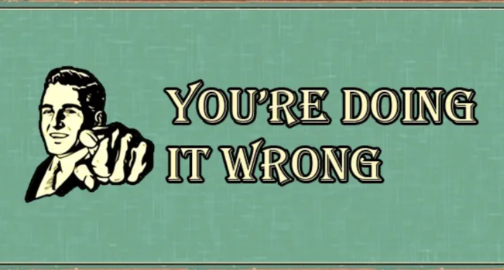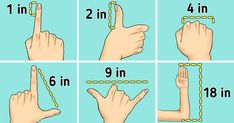
I don’t know about you, but I often have this nagging feeling that I’m doing it wrong. What is “it?”
Could be anything really. What I eat. How I exercise. How I do my work. How I write. How I’m growing my blog. My parenting style. How I invest.
Then I realized that everyone is doing it wrong–and that’s OK.
It’s a common idea that an airplane is off-course 90% of the time. Maybe that’s true, maybe it’s a feel-good analogy, but it makes sense. Since I’m not a pilot, I think of driving a car. Most of the time I am not pointed directly at my destination. I have to constantly course correct and turn to get where I am going.
In the same way, we are all making small (or large) mistakes in our lives and work on a daily basis. But if you think about it like the car analogy, they’re not really mistakes, they are only motions in a direction we did not want to go. In most things, there is no right way to do things, but rather effective and less effective approaches.
When you think, “I’m doing it wrong,” it’s easy to get too caught up in the wrong part and forget about the doing part. DOING is the key. You can’t steer a parked car. Doing something is way more important than getting it exactly right. I’m convinced that 80-90 percent (or something high like that) of the result is due to the action itself, and the rest is from the how. I guess I’m still leaving some room for the importance of how you do it (you know the saying, perfect practice makes perfect and all that). But focusing too much on the how need not be (and should not be) the major focus, especially if you’re just starting out and/or if you are not aiming to be world class. Once I clued into this, I began to see this theme all around.
One of my favorite supports of this principle comes from Scott Adams (creator of Dilbert) when he talks about the importance of systems over goals. We all know the cycle of setting goals, trying to stay motivated for several days or weeks, and then ultimately failing and feeling bad. Scott flips this around and suggests that you only focus on the process rather than the goal.
For example, I had never been successful at keeping up a regular exercise routine until I focused on the process. I decided that I would spend 25 min each day following a DVD workout program suggested by a friend. I had no goals about weight loss, strength, nutrition, or otherwise. But, I committed to spend the time following this program. At first I thought following the exact program mattered (number of reps, sequence of workouts, etc.). After doing it for a year and a half now every morning, I am convinced that it really only matters that I am doing something that pushes me hard. If I stop it 5 min before the end because I am pressed for time, I don’t stress about it. If I can’t keep up exactly with the people in the workout, no guilt. I’m just going to keep doing it. My body gets about 90 percent of the benefit, and that’s all I care about. A year and a half later, I am in the best shape of my life. After all, what’s the best exercise? The one you will DO.
Derek Sivers told Tim Ferris,
If all we needed was more information, then everyone would be a billionaire with perfect abs.
Jack Welch, former CEO of General Electric, when asked about strategy famously said,
Pick a general direction and implement like hell.“
It’s the doing that unlocks nearly all the benefits in life. The motion is most important. It’s the system that matters. You will learn as you go. You will course correct as needed.
So if you feel like you’re doing it wrong, you’re actually doing it right (because you are doing it)!











